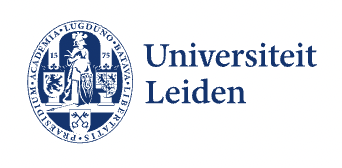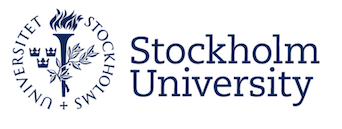Lineke Ouwerkerk – PhD student at Stockholm University
Lineke is a PhD student at Stockholm University and Leiden University where she investigates extinction learning in adolescents. Her project is an international collaboration between the unit Developmental and Educational Psychology at the Institute of Psychology at Leiden University and the Department of Psychology at Stockholm University.
What kind of job do you currently have?
Currently, I am doing my PhD which started this year (February 2022). It is a collaboration between Leiden University and Stockholm University. My research is about extinction learning in adolescents. So, in healthy participants, we are investigating the best method to extinguish fears. Most generalized and social fears begin during adolescence and the current treatment for this is exposure therapy. Extinction is the experimental equivalent of exposure therapy. Extinction learning involves learning of a new inhibitory association between the feared stimulus and a non-feared outcome. It appears that this form of learning is less effective in adolescents. Therefore, we want to see if social learning could be more effective. Social learning is about seeing someone else experiencing something that would scare you. This can lead to the realization that it isn’t something to be afraid of. It turns out that peers are very important in these processes. This paradigm has already been tested in Swedish adults and it worked there, so I'm going to replicate and apply it for the first time to adolescents. First, I’m going to do a general study in which we look at the evoked fear response, which we try to measure using skin conductance. Second, I will perform an fMRI study to look at what happens in the brain. For me it is an ideal combination of my Bachelor of Psychology and my Master of Neuroscience because I really like the combination of brain and behavior. In addition, we look at hormones because they appear to influence the degree of extinction learning as well.
It looks like the planning for your PhD has already been mapped out reasonably well?
Yes, we will start with a more general study and then we will do a large fMRI study. The idea is that I will also do a study in Sweden related to this topic, but that depends on how the first two studies go.
When did you start applying for PhD positions?
I've taken a bit of an alternative path. During the master Neurosciences, I realized that I also was fascinated by the philosophy of neuroscience. This resulted in me doing the combined master’s where you also do a master’s in philosophy. As a result, it took me four years to complete both research masters. I officially graduated in January, but I already started to orientate around August, so this was at the end of my master’s.
I personally found 'academic transfer' very useful for keeping an eye on vacancies, so I searched for vacancies that appealed to me and sent them a letter. I also reacted to vacancies that appealed to me a bit less, because during the job interview you can find out whether it really suits you. I think it is good to always be critical and decide whether you really want to work there, instead of being too eager and only focusing on whether they want to hire you.
Did you have to apply for multiple job applications before you got this PhD?
I took a side job after my graduation in January 2020. In the meantime, I was applying for jobs, but then Corona started in March. As a result, a lot of applications went on hold, but I continued to apply to jobs. However, that became very difficult. Ultimately, through connections in Leiden, I ended up with a research assistant position. It wasn’t the ideal job yet, as I aspired a PhD, but ’it was a nice steppingstone for a PhD. I started for one day a week and, a few months later, it became a full-time job. I did this for about 2 years, during which I taught classes and obtained my MRI scanning certificate. I learned a lot during these years and made me more attractive as a potential PhD candidate.
What was the application process for your PhD like?
I sent a total of about 15 letters, and I noticed that there was a lot of competition everywhere (more than 200 competitors). I was invited for an interview three times but didn’t get the job.
You said that you would also respond to jobs you were not super enthusiastic about, did you also experience that you became enthusiastic when you were in certain job interviews?
Yes, the funny thing is that the vacancies I doubted the most, I was invited for an interview. This was probably because I also called in advance and told them that I was very interested, but I did not quite fit the profile and asked them if I still could apply. I think that, in this way, you come across as proactive, assertive, and probably motivated. During those interviews, I sometimes found out that it suited me and matched my master's quite well. There are many vacancies aimed at a medical background, but it turned out that this was not required in all cases.
What was your biggest motivation for doing a PhD?
Are you still working in the same group as where you worked as a research assistant?
Yes, it’s the same group, except for the collaboration with Sweden. Because of this, I already knew that the atmosphere was good and that the people were nice, which was very nice to know. Furthermore, it is useful to know how many PhD students your supervisor already has. Some supervisors already guide many PhD students, so you can hardly speak to them. I am the second PhD student of my supervisor, and the only PhD student of my other supervisor, so I have a lot of contact and they have a lot of time for me, which is very valuable.
Do you recommend taking another job between your master's and a PhD first, or does it not matter much?
It wouldn't have mattered to me if I had started doing a PhD right away. I do think that my experience made it easier to find a PhD. I hear that many people start with a research assistant position and get a PhD position at that group afterwards because they are the first to respond to the PhD positions. This way, supervisors can also see whether you can work well and deliver good work. Plus, I have gained a lot of experience in teaching, recruiting, and data analysis and I obtained my MRI certificate. I would have preferred to have started a PhD right away, but I learned many things from being a research assistant. I don't see it as a major disadvantage, but as a great steppingstone for a PhD.
Do you plan to stay in academia after your PhD or do you have other plans?
I think there are still fairly large differences between PhD positions, how is this for you?
Are there other things that are different about your PhD because you work in Sweden?
One difference is that you have an increasing salary in the Netherlands. In Sweden, you have a half-time review where you must present your progress thus far. If that is approved, you get a raise for the last 2 years. The salary itself is a bit higher and is paid in crowns which could be troublesome if you want to buy a house in the Netherlands. Furthermore, I mainly see it as a nice addition, because of more international collaborations, which also look better on your CV, and I just really like that I'm going to do my PhD in Sweden. Lastly, it's also great that I can share expertise between two universities, which is an added value for me.
Do you have any tips or comments for students looking for a job?

